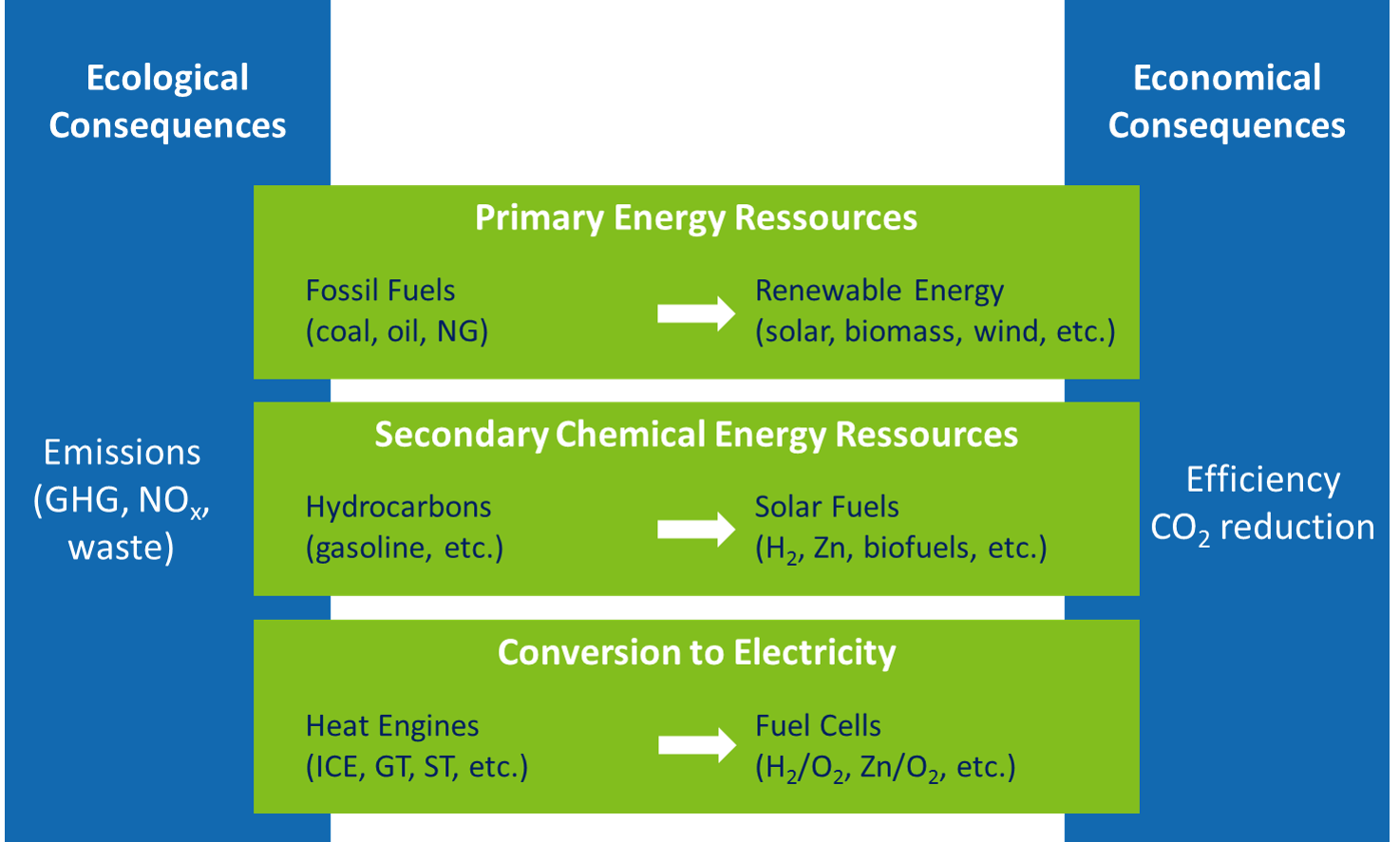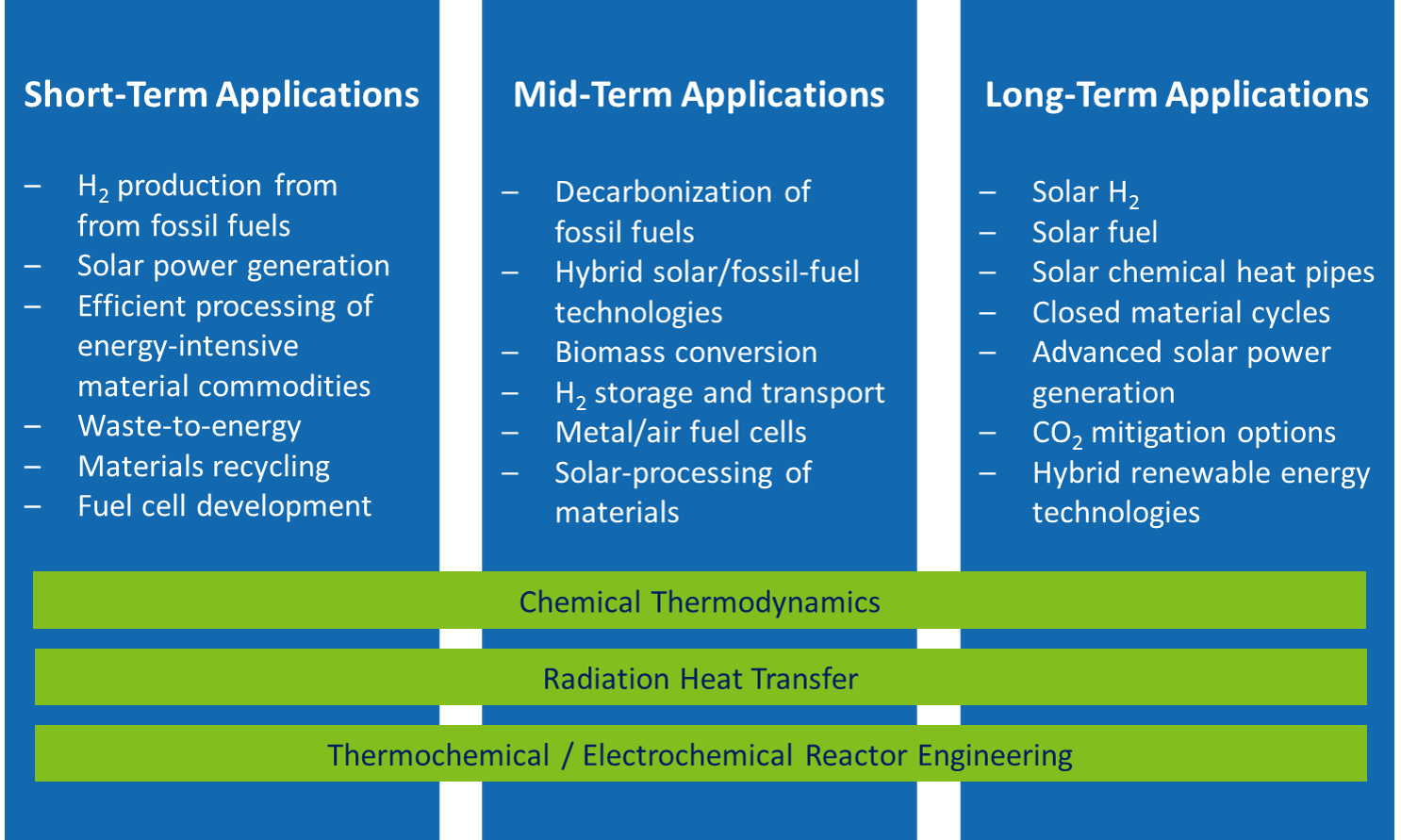Master at PREC
"By 2020 a wide variety of renewable sources is supplying a fifth of electricity in many OECD markets and nearly a tenth of global primary energy... By 2050 renewables reach a third of world primary energy and are supplying most incremental energy."
Shell International
Objective
The Master of Science in Mechanical Engineering with specialization in Renewable Energy Technologies is aimed at providing advanced in-depth education and independent research training to engineers in the area of renewable, sustainable, decentralized energy utilization. It encompasses graduate-level courses in thermal sciences and renewable energy technologies, a Semester-project, and a Master research thesis in a specific scientific topic pertinent to renewable energy.
Education & Research Scope
Emphasis of this Master specialization is in the application of the scientific fundamentals of thermal sciences for the process engineering development of novel, cleaner, and efficient energy technologies. The path to sustainable energy utilization is pursued in three domains, as indicated in the adjacent diagram.
- Primary energy resources: substitution of fossil fuels by renewable energy
- Secondary energy resources: substitution of fossil-fuel-based hydrocarbons by cleaner secondary energy carriers (e.g. hydrogen, methanol, biofuels, metals, etc.)
- Conversion to electricity: development of more efficient and less pollutant energy conversion devices (e.g. fuel cells).
List of recommended courses
Subjects for Master theses
The adjacent table lists several topics for R&D projects. All are aimed at the efficient conversion and sustainable utilization of energy, with focus on renewables and CO2 mitigation technologies. On the more fundamental aspects of energy conversion, the research emphasis is in thermodynamics, chemical reaction kinetics, heat/mass transfer, concentrating optics, and high-temperature chemical reactor engineering.
Coordination
The specific master's curricula and tutor agreements are coordinated by the Professorship in Renewable Energy Carriers.
Experimental/Theoretical work
Experimental work is to be carried out in the laboratories of the Professorship in Renewable Energy Carriers. State-of-the-art research facilities include the High-Flux Solar Simulator and the Spectroscopic Goniometry System. Theoretical work includes thermodynamic and kinetic analyses, computational fluid dynamics, and heat/mass transfer modelling.

